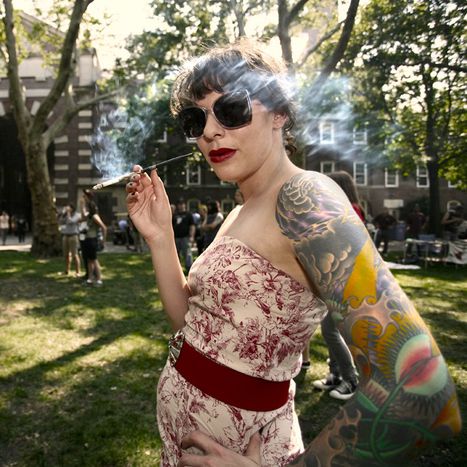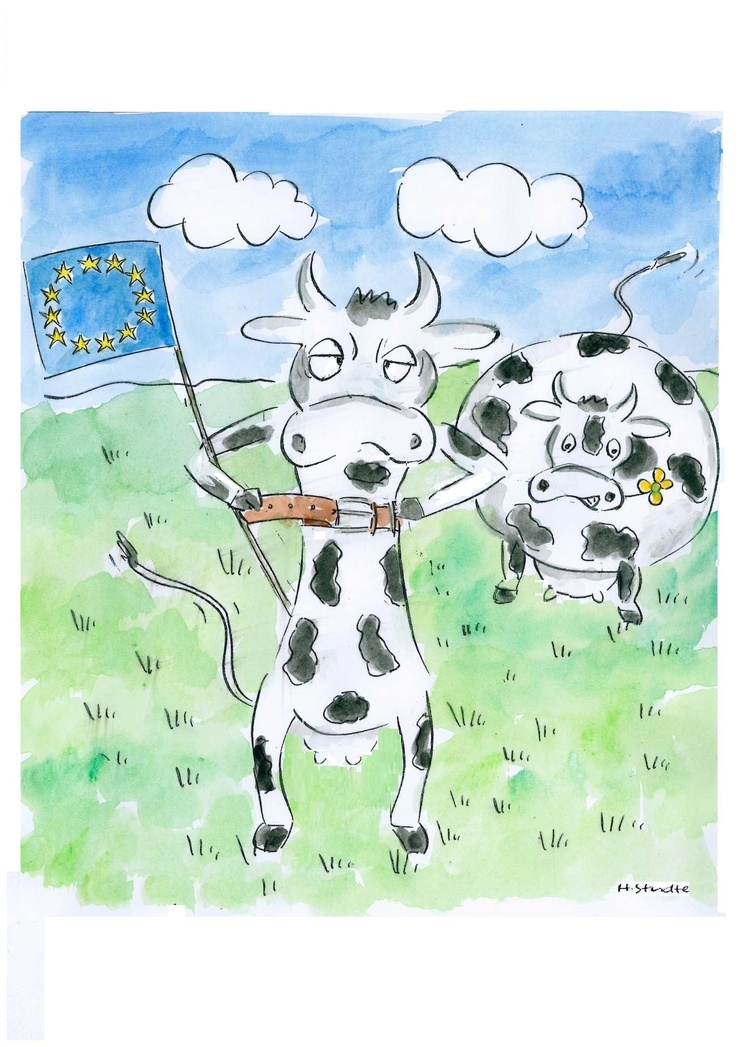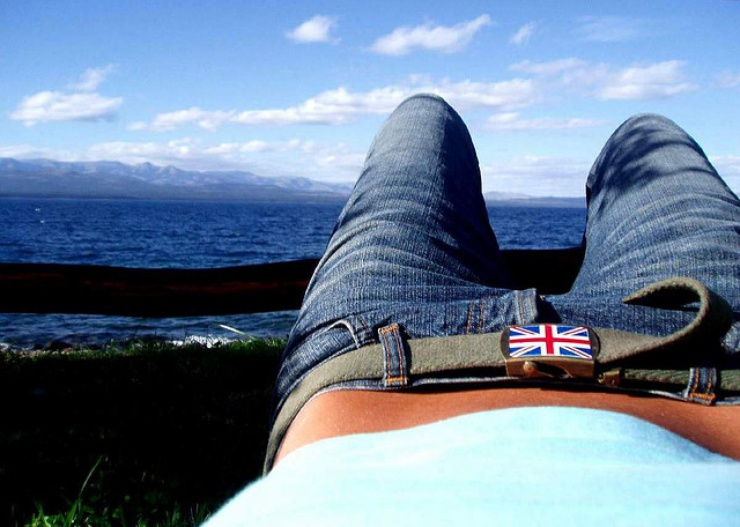
Tightening the belt
Published on
As we enter the fifth year of economic downturn in 2013, Europeans keep ‘tightening their belts’ whilst agreeing that they live ‘in a period of lean cows’ – idiom of the week
When economising Europeans lose weight they tighten their belts, from Poland (zaciskać pasa) to Greece (σφίγγω το ζωνάρι) via Germany (den Gürtel enger schnallen). On the landscape, their animals symbolise this disquiet. European cows enjoy an unusual camaraderie in a climate of rocked financial security, through the use of a common expression: it’s the time of the lean cows, in Greece (ο καιρός των ισχνών αγελάδων), Spain (tiempo/ periodo de vacas flacas), Italy (tempi di vacche magre) and France (une periode de vaches maigres).
 The biblical reference goes back to the story of Joseph and the Pharoah in the book of Genesis. In chapter 41, the Pharaoh dreams that seven fat cows on the banks of the Nile are eaten by seven lean cows coming out of the river. Joseph interprets: ‘The Pharoah’s country will go through seven years of prosperity and plenty, followed by seven years of want and hunger’.
The biblical reference goes back to the story of Joseph and the Pharoah in the book of Genesis. In chapter 41, the Pharaoh dreams that seven fat cows on the banks of the Nile are eaten by seven lean cows coming out of the river. Joseph interprets: ‘The Pharoah’s country will go through seven years of prosperity and plenty, followed by seven years of want and hunger’.
The healthiest economies in the EU are not immune: the starving Poles literally stick their teeth into the wall (wbijać zęby w ścianę), while the financially incompetent Germans crawl on their gums (auf dem Zahnfleisch kriechen) in their sour pickle times (Saure-Gurken-Zeit). German wallets ebb and flow (Ebbe im Portemonnaie) in a neo-romantic vision of their money disappearing, like water swept away by the moon’s gravity.

We in the south are more pragmatic: the Greek expression is to be broke and sang froid (ταπί και ψύχραιμοι) - cool and composed in a crisis. The broke Italians are not in the red, but say that they are in the green (al verde). This is according to a thirteenth century custom of painting the base of a candle green, the last colour they would see after its flickering light went out, and their money ran dry. The French period of want and scarcity (la disette) allegedly comes from the Greek ‘δίσεκτος’ ('leap year') - a year, or five as the EU has had it, of bad luck.
Read more from the author on her writing and translation website, Worlds of Words
Image: (cc) * raymond/ Raymond Haddad/ flickr; British belt (cc) radioher/ radioher on Last FM/ flickr



